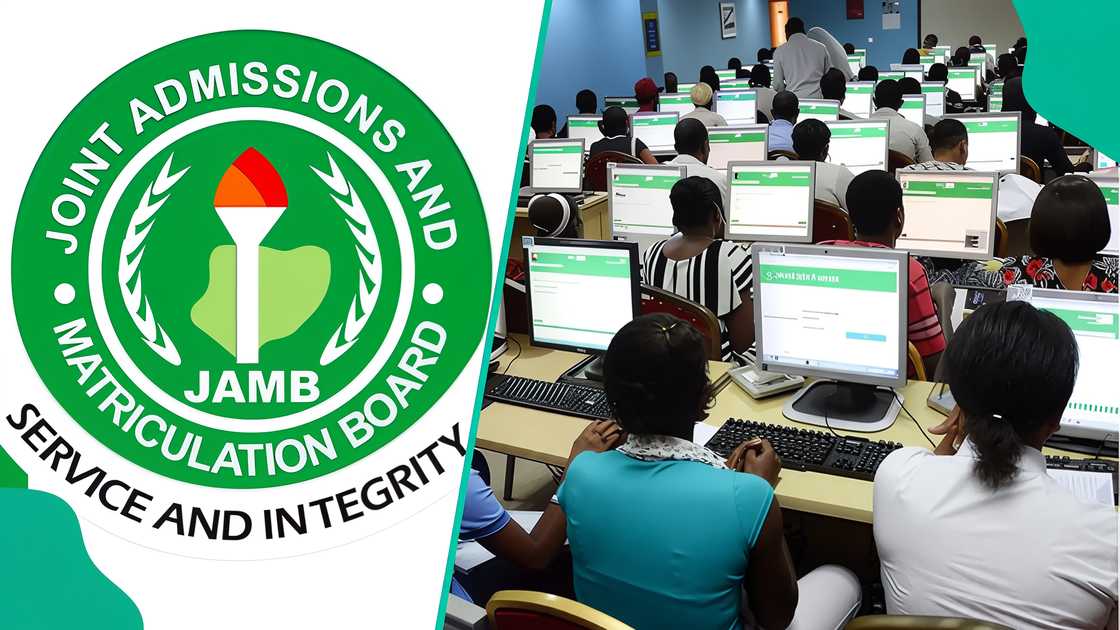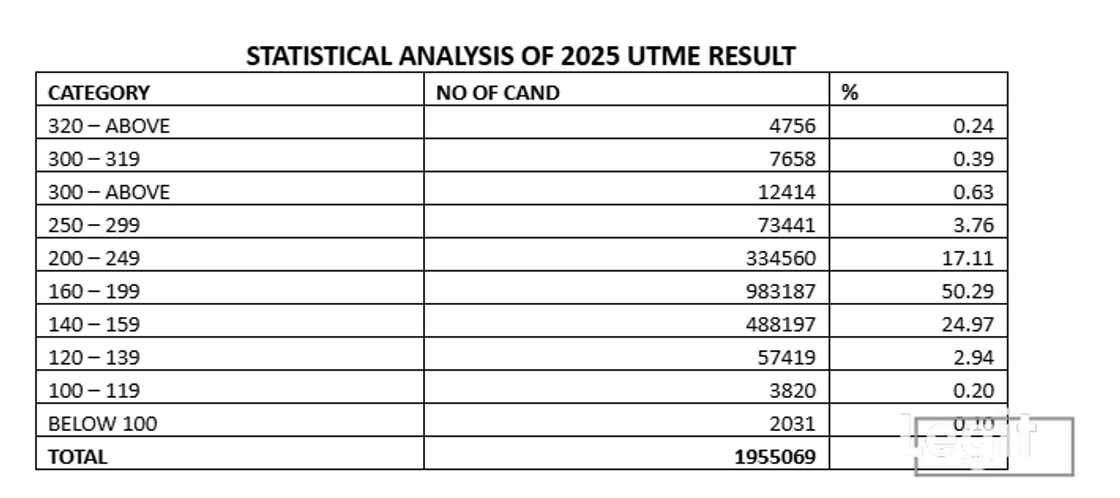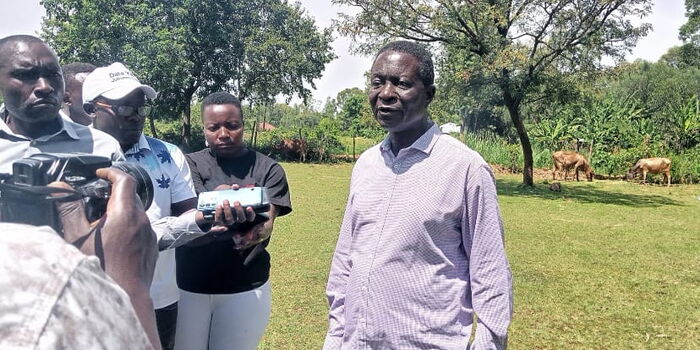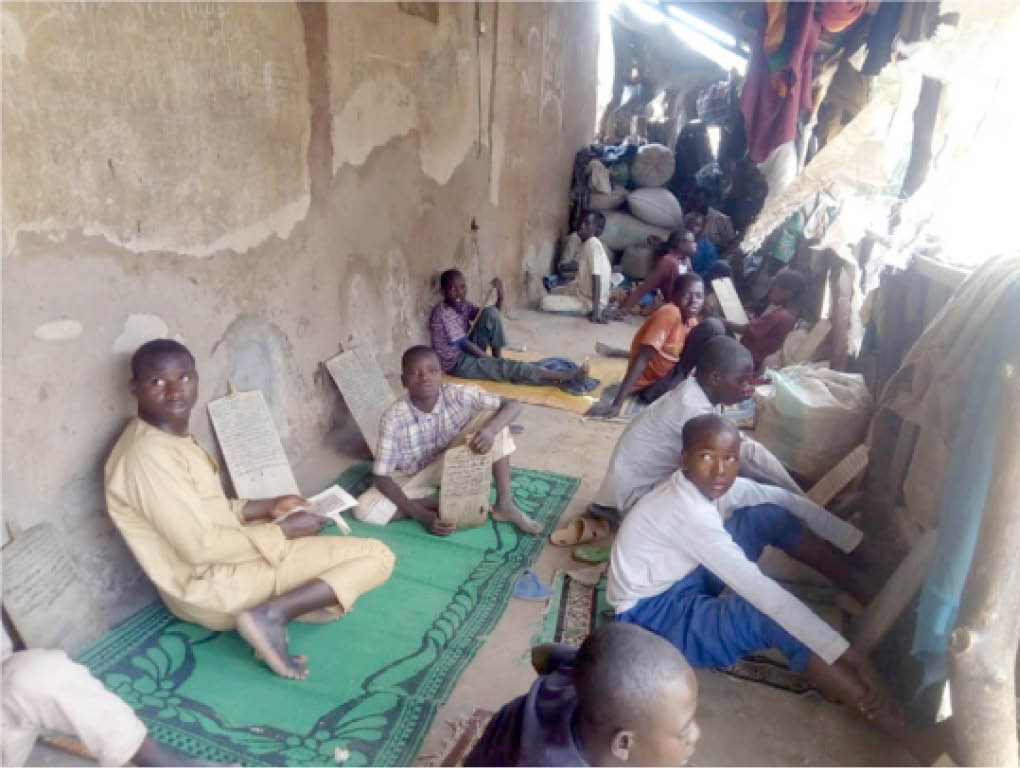2025 UTME Results: Only 0.63% Scored Above 300 Out of 1.9 Million Candidates, What the Numbers Say
Editor's note: In this piece, Folaranmi Ajayi, educator and policy writer, analyses the 2025 UTME results, addressing systemic challenges in Nigeria’s education system and urging necessary reforms to improve student performance.
The Joint Admissions and Matriculation Board has released the statistics of the results of the just concluded 2025 UTME and the numbers tell an important story about the performance of over 1.9 million candidates who sat the exam.

Source: Twitter
Out of a total of 1,955,069 candidates, only 12,414 scored above 300. That is just 0.63 percent. Even more striking, only 4,756 candidates scored 320 and above, which is less than one percent. These figures show how tough it is to score in the highest range.
More than half of the candidates, about 983,187, scored between 160 and 199. That group makes up over 50 percent of everyone who took the exam. Another large group 488,197 candidates scored between 140 and 159.
A closer look at the scores shows that 334,560 candidates were in the 200 to 249 range. These are the scores many universities consider for admission, especially into competitive courses.
At the lower end, 57,419 candidates scored between 120 and 139, while 3,820 scored between 100 and 119. Sadly, 2,031 candidates scored below 100.
JAMB also gave a chance to 40,247 underage candidates to prove they had special academic abilities. But only 467 of them just about one percent met the standard required. Their results are still being reviewed in the next stages.
There were also some concerns about exam misconduct. JAMB confirmed that 97 candidates were involved in cheating, and 2,157 others are still being investigated for suspected malpractice.
Another group of 71,701 candidates did not show up for the exam. Some of them faced biometric challenges and are now being investigated. Those who are cleared will be allowed to sit the exam at a later date.
For some other candidates, including blind students and those under the JEOG group, their results are still being processed.
JAMB has said it will hold a press conference soon to explain how candidates can check their individual results.
What this year’s results show is that a large number of students are scoring in the mid-range. Very few are reaching the top scores that usually secure places in the best courses and schools. It is a reminder that while millions are trying, only a small group are making the kind of scores that open big doors.
These numbers are not just statistics. They reflect the state of our education system, the preparation of students, and the many challenges they face. The question now is, what can we do better next time?

Source: Original
What can we do better next time?
First, we need to start preparing our students early, not just weeks before the exam. Schools, teachers, parents, and even students themselves have to take learning more seriously—not just for passing exams but for understanding what they are taught.
Second, we need to make learning easier and more interesting. Too many students are memorising without understanding. Teachers should be trained and supported to teach in ways that connect with real life and help students think for themselves.
Third, we must improve access to learning tools. Not every student has a textbook, access to the internet, or even a quiet place to study. Government, schools, and private organisations can work together to bridge this gap. Education should not be a matter of luck based on where you live or how rich your parents are.
Fourth, students need proper guidance. Many young people are confused about what to study, how to study, or even why they are studying. Mentorship and career counseling should be introduced early in school.
Fifth, we must make the exam process better and more reliable. Some students missed the exam because of biometric issues. Some are still waiting for their results. We need systems that are fair and work for everyone, including those with special needs.
Lastly, let’s not leave everything to JAMB. Our education system is a shared responsibility. If we want better results next time, we all need to show up and do our part, students, parents, teachers, government, and even the media.
Because at the end of the day, these numbers are not just scores. They are stories, dreams, and the future of Nigeria.
Disclaimer: The views and opinions expressed here are those of the author and do not necessarily reflect the official policy or position of Legit.ng.
Folaranmi Ajayi is an educator, journalist, and education policy writer passionate about transforming Nigeria’s education sector.
PAY ATTENTION: Сheck out news that is picked exactly for YOU ➡️ find the “Recommended for you” block on the home page and enjoy!
Source: Legit.ng










